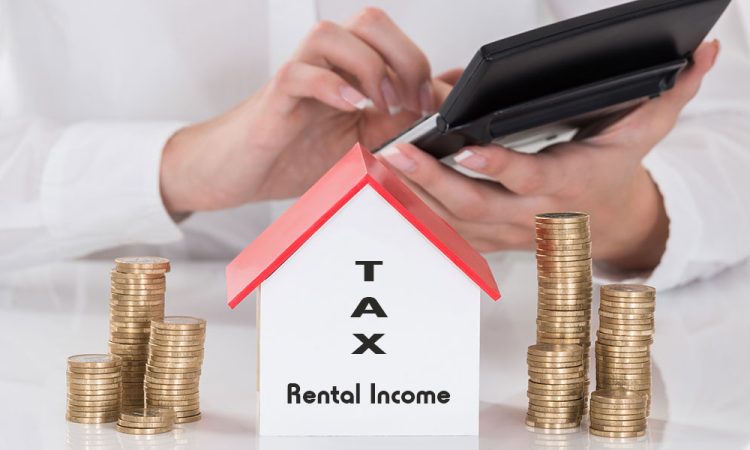
Owning rental property in Byford can offer a steady income stream and the potential for long-term financial growth. However, managing rental income comes with the responsibility of understanding and fulfilling your tax obligations. Many property owners find navigating tax laws complex and may be unsure if they are paying the correct amount of tax. This article provides a comprehensive guide on rental income taxation, offering insights to help property owners in Byford ensure they are meeting their tax obligations accurately.
What is Rental Income Taxation?
Rental income is the money received from renting out property. This income is subject to taxation, and it is crucial to understand how it is calculated and reported. Here’s a breakdown of key concepts related to rental income taxation:
Defining Rental Income
Rental income encompasses any money received from tenants for the use of your property. This includes:
- Regular Rent Payments: Monthly or periodic payments made by tenants.
- Additional Charges: Fees for extra services or utilities that you may charge tenants, such as water, electricity, or parking.
- Bond Payments: While typically a security deposit, any portion of the bond you retain may also be considered rental income.
Accurate reporting of all sources of rental income is essential for compliance and effective tax management.
Calculating Taxable Rental Income
To determine your taxable rental income, start by calculating the total rental income received during the tax year. This total amount must be reported on your tax return. From this gross rental income, you can subtract allowable deductions to arrive at your net rental income, which is subject to tax.
Allowable Deductions
Deductions can help reduce your taxable rental income, and knowing which expenses are allowable is crucial. Common deductions include:
- Property Management Fees: Costs associated with hiring property managers to handle tenant relations and maintenance.
- Interest on Loans: Interest paid on loans used to purchase or improve the rental property.
- Repairs and Maintenance: Costs for repairs and routine maintenance that keep the property in good condition.
- Depreciation: Deductions for the decline in value of the property and its assets over time. This includes furniture, appliances, and other property components.
- Insurance: Premiums for insurance policies covering the rental property.
- Utilities: If you cover utilities for tenants, these costs can be deducted.
Ensure you maintain detailed records and receipts for all these expenses to substantiate your claims.
Depreciation and Its Effects
Depreciation allows you to claim a deduction for the reduction in value of the property and its assets over time. While this can reduce your taxable income in the short term, it can also lower the cost base of the property. This reduction in the cost base can impact your capital gains tax liability if you sell the property later. Understanding how depreciation affects your overall tax situation is important for effective financial planning.
Understanding Taxable Income and Tax Rates
Rental income is added to your other sources of income, such as wages or investment income, and taxed at your marginal tax rate. Your total taxable income for the year determines the rate at which your rental income is taxed. It’s important to be aware of your total income to understand how much tax you may owe on your rental income.
Keeping Accurate Records
Accurate record-keeping is fundamental to managing rental income and ensuring you pay the correct amount of tax. Keep thorough records of:
- Rental Payments: Document all rent received and any additional charges.
- Expenses: Maintain receipts and records for all deductible expenses.
- Depreciation: Track depreciation claims and schedules for the property and its assets.
Good record-keeping not only supports accurate tax reporting but also provides necessary documentation in case of an audit.
Reporting Rental Income
Rental income must be reported on your annual tax return. Typically, there is a specific section or schedule for reporting rental income and expenses. Ensure that you accurately report both the total rental income received and the deductions claimed to calculate your net taxable income.
Tax Planning Strategies
Effective tax planning can help you manage your rental income tax obligations and optimize your financial outcomes. Consider these strategies:
- Review Deductions Regularly: Regularly review and update your list of allowable deductions to ensure you are claiming all eligible expenses.
- Optimize Depreciation Claims: Consult with a tax professional to accurately claim depreciation and understand its impact on your overall tax situation.
- Incorporate Tax Planning into Financial Strategy: Integrate your rental income and tax obligations into your broader financial planning to manage cash flow and investment goals.
Seeking Professional Advice
Tax regulations can be complex and subject to change. Consulting with a tax advisor or accountant can provide valuable guidance tailored to your specific situation. They can help ensure compliance with tax laws, maximize your deductions, and develop a tax strategy that aligns with your financial goals.
Staying Informed About Tax Changes
Tax laws and regulations are subject to change, so staying informed about updates that may affect your rental income tax obligations is important. Regularly review tax guidelines and seek advice if needed to ensure you remain compliant and adapt your tax strategy as required.
Conclusion
Paying tax on rental income is a key responsibility for property owners in Byford. Understanding what constitutes taxable rental income, claiming allowable deductions, and maintaining accurate records are essential for managing your tax obligations effectively. By incorporating tax planning strategies and seeking professional advice, you can ensure that you are paying the correct amount of tax and optimizing your financial outcomes.
Whether you’re a seasoned property owner or new to rental investments, being informed about rental income taxation will help you make better financial decisions and achieve your investment goals. Effective tax management is not just about compliance but also about enhancing your overall financial strategy and maximizing the benefits of your rental property investments.




